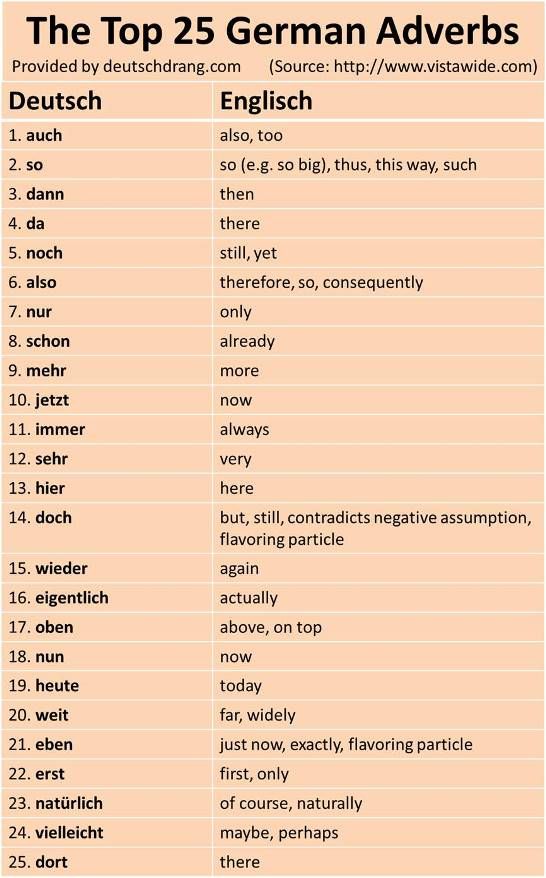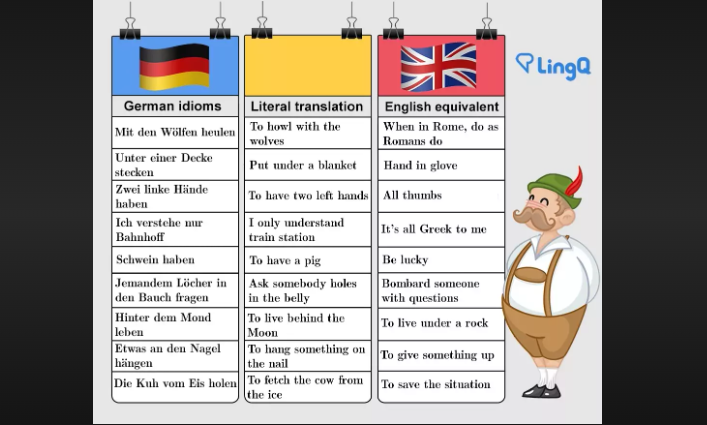The Linguistic Marvel: How Many Words Does the German Language Have?
The German language, renowned for its precision and complexity, stands as a linguistic marvel with a rich history and a vast vocabulary. If you've ever wondered about the extent of words in the German language, you're not alone. In this article, we'll delve into the intricacies of the German vocabulary and explore the question: How many words does the German language have?

Top 25 german adverbs
1. A Tapestry of Expression: Introducing the German Language
Before we unveil the magnitude of the German vocabulary, let's introduce the language itself.
German, belonging to the Germanic branch of the Indo-European language family, is spoken by millions of people primarily in Germany, Austria, Switzerland, and other parts of Europe.
Renowned for its compound words and complex grammatical structure, German is a language that reflects the cultural and historical richness of its speakers.
2. Measuring the Lexicon: The Complexity of Counting Words
The task of quantifying the number of words in a language is more complex than it might seem.
Languages are dynamic and constantly evolving, with new words being coined and old words falling out of use.
Furthermore, words can take on different forms, meanings, and nuances based on context. As a result, determining an exact number of words is a challenging endeavor.
3. Variations and Word Forms
In German, as in many languages, words can have multiple forms and variations based on factors such as tense, case, gender, and number.
Nouns, for example, can be declined in different cases (nominative, accusative, dative, genitive), leading to variations of the same word. Similarly, verbs can be conjugated to match different subjects and tenses.
4. Compound Words: A Unique Feature
One of the defining features of the German language is its penchant for creating compound words.
These words are formed by combining multiple words to create a new concept or term.
The practice of forming compound words allows for a level of specificity and precision that is unparalleled in many other languages.
Compound words can range from simple combinations to lengthy terms that convey highly specialized meanings.
5. Dictionaries and Word Counts
Various dictionaries attempt to catalog and quantify the words in the German language.
The Duden, a prominent German-language dictionary, contains approximately 145,000 headwords.
This number, however, does not capture the full extent of the language's vocabulary, as it doesn't account for variations, inflections, and regional dialects.
6. The Influence of Technology and Globalization
In the digital age, technology and globalization have brought about new ways of communication and expression.
The internet, social media, and advancements in technology have led to the rapid creation of neologisms (newly coined words), slang, and borrowed words from other languages.
This phenomenon adds to the ever-expanding lexicon of German.
7. Language Evolution and Creativity
Languages are living entities that evolve alongside the societies and cultures that use them.
The German language continues to adapt to contemporary needs, integrating new terms to describe concepts that have emerged in modern times.
As speakers creatively express themselves, the German vocabulary grows to accommodate these expressions.
8. The Unquantifiable Magic of Words
In the quest to determine the exact number of words in the German language, we encounter a realization: the true magic of language lies beyond numbers.
Words are vessels of culture, emotion, and thought.
Each word carries with it a history, a context, and a world of meaning. Whether a language has thousands or millions of words, its true value is in its ability to connect people, convey ideas, and shape the tapestry of human experience.

German idioms, literal translation and english equivalent
While quantifying the exact number of words in the German language is a challenge, the true essence of its vocabulary extends far beyond numerical counts. German's intricate grammar, compound words, and diverse forms contribute to a linguistic landscape that reflects the depth of human expression. With each word, phrase, and sentence, the German language captures the richness of culture, history, and human connection.